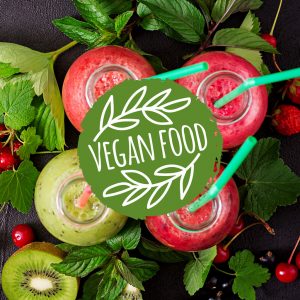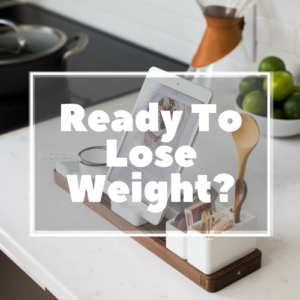The vegan diet is a subclass of vegetarianism that excludes all animal products, including meat, fish,
poultry, dairy, and eggs, and is gaining popularity – but is it healthy in the long term?
Whilst there are a few issues involved with the diet given the restrictions to animal-based nutrients,
if properly thought-out and supplemented the vegan diet has shown no signs of being unhealthy and
very few people fail to thrive. Though more research is still needed into the long-term effects of a
vegan diet, so long as the main issues are accounted for, there is no reason a long-term vegan diet
should be unhealthy.
So what do you need to look out for?
The first thing to consider in terms of long-term health with a
diet like veganism that excludes such a large proportion of food variety, and one of the main
arguments against its use, is the loss or reduction of a large number of important vitamins and
nutrients that are otherwise naturally absorbed through a healthy, diverse diet.
What are the main issues?
The biggest health concerns for vegan diets long-term include a lack of vitamins B12, D, omega-3
fatty acids, and minerals like iron and calcium. Additionally, with the exclusion of meat comes a
decrease in protein and protein quality, an important building block for muscle, bone, cartilage, skin,
and blood.
For vegetarians, who eat eggs and dairy, these macro and micronutrient deficiencies can more
readily be made up with low-fat yoghurts, cheese, and eggs. The more restricted vegan diet,
however, must be properly planned and the necessary nutrients responsibly substituted, especially if
it is to be followed long-term as a healthy body tends to have enough stores to cope with the
decreases short-term.
It is often due to this stricter requirement for meal planning and proper supplement accrual that
gives the vegan diet higher potential for health risks long-term. An unhealthy, and potentially
dangerous, long-term vegan diet could look like a lot of processed food (Oreos and doughnuts are
vegan too…), or an otherwise healthy, organic diet that lacks structure and supplementation for vital
nutrients.
What are the health risks and what can I do to solve them?
Vitamin B12: Plants don’t make B12, it can only be naturally gained through animal
products. Without sufficient B12 you can slowly develop symptoms such as anemia,
weakness, fatigue, cognitive difficulties, memory loss, difficulty walking, a swollen tongue,
and strange sensations (numbness, tingling in limbs), and these effects can become
irreversible. This is easily solved nowadays, with vitamin B12 fortified foods (eg. Cereals,
breads, soy products), weekly B12 shots, and daily B12 pills readily available.
Vitamin D:When you’re unable to get enough sun exposure during the day
Vitamin D must be obtained through animal products such as eggs or wild salmon. Vitamin D deficiency
means calcium and phosphorous cannot be readily absorbed, limiting and misshaping bone
growth and influencing immune function, mood, and muscle recovery. To solve this on a
vegan diet, get your blood tested, and if required take a vitamin D2 or vegan vitamin D3
supplement.
Omega-3 Fatty Acids:Three types of fat comprise omega-3 fatty acids: Alpha-linolenic acid (ALA),
eicosapentaenoic acid (EPA), and docosahexanoic acid (DHA). Omega-3 fatty acids bring not only a lot of benefits to your body, but also maintain crucial elements such as heart, brain,
and eye health. Symptoms of low omega-3 fatty acids include: dry skin and hair, soft or
brittle nails, dandruff, dry eyes, attention issues, mood changes (irritability, low tolerance,
mood swings), fatigue, and joint discomfort. While ALA are primarily found in walnuts,
flaxseed, chia seeds, and canola oil, EPA and DHA are mostly found in fish. Make sure you’re
consuming enough of these foods and if required, supplementing EPA and DHA.
Minerals:
Iron: Iron can be obtained through both plant and animal products, but iron deficiencies are
still very common in vegetarians and vegans because iron from plants, ‘non-heme’ iron, has
a lower absorbability and is less effective, so much more needs to be consumed in order to
prevent iron deficiency. Iron is required for haemoglobin production (a protein in red blood
cells that allows them to transport oxygen). Without it, tissues and muscles become oxygen
deprived and leads to anemia, fatigue, paleness, headaches, dizziness, shortness of breath,
heart palpitations, restless legs, damaged skin, hair, and fingernails, and swollen or sore
mouth. Iron can be acquired through green vegetables, lentils, chickpeas, beans, tofu, nuts
and seeds, and dried fruit, and easily supplemented with a daily pill.
Calcium: Since the vegan diet excludes dairy, the main source of well-absorbable calcium,
long-term use can result in calcium deficiencies that can cause weaker bones, hair, and nails,
and irritate the nervous system (muscle and abdominal cramps, hyperactive reflexes, tetany,
etc.). Good vegan sources of calcium include green, leafy vegetables (eg. Broccoli, cabbage,
okra), calcium-set tofu, sesame seeds, pulses, dried fruit, or calcium supplements.
What are the benefits of a healthy long-term vegan diet?
Though there is more to consider in order to maintain a healthy vegan diet long-term than an
omnivorous diet, if you decide to take it on, studies have shown support for the significant health
benefits of a plant-based diet.
A 2016 study published in the proceedings of the nutrition society titled ‘The long-term health of
vegetarians and vegans’ noted that these diets have a lower prevalence of overweight and obesity,
lower risk of IHD. There is also evidence for a lower risk of cancer, diabetes, diverticular disease, and
eye cataracts, and while mortality was similar vegetarians and vegans compared favourably.
In addition, these diets have a much more reduced environmental impact as plants, when farmed
sustainably, require considerably less water, space, maintenance, and food, filter the air, stabilise
the soil, and produce oxygen. The average water footprint per calorie for beef is twenty times larger
than cereals and starchy roots.
Ultimately, a long-term vegan diet properly conducted and maintained in line with your nutritional
need can be not only healthy, but beneficial.
– Bone health
– Supplements (do it properly)
– The vegan diet can be a healthy eating pattern for individuals who ensure they are meeting
all of their macronutrient and micronutrient needs, such as iron, calcium, vitamin D, vitamin
B12, and omega-3 fatty acids.


